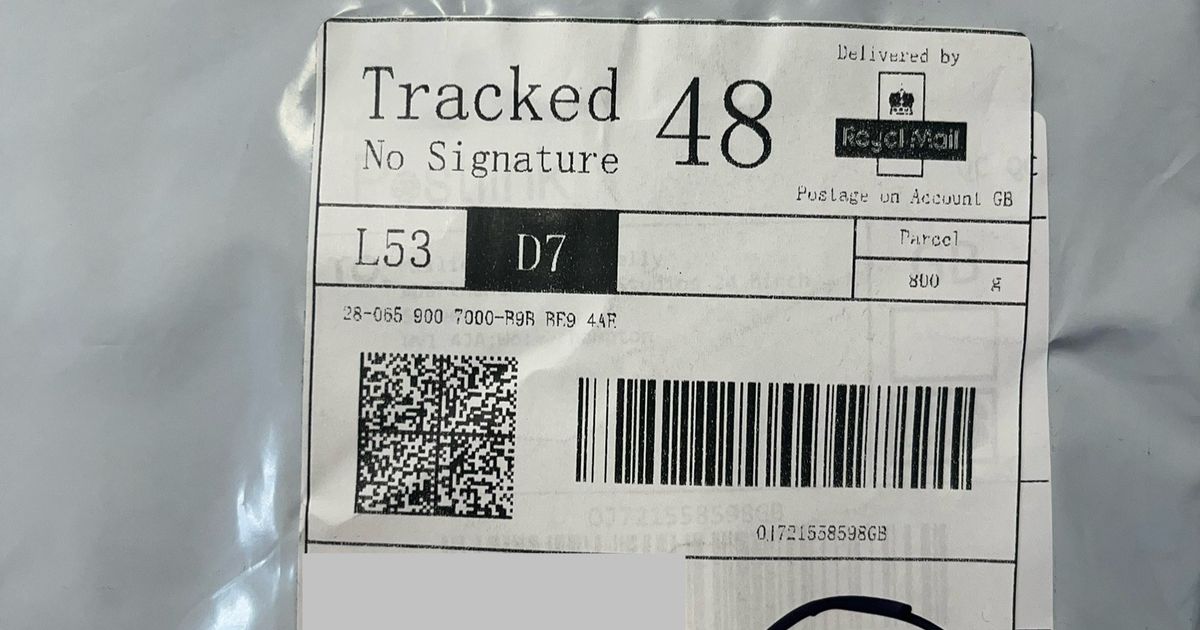A Manchester Evening News investigation has in recent weeks revealed how cheaply-made items are being made in bulk and actually shipped from warehouses in China. James Holt reports on the people who are being scammed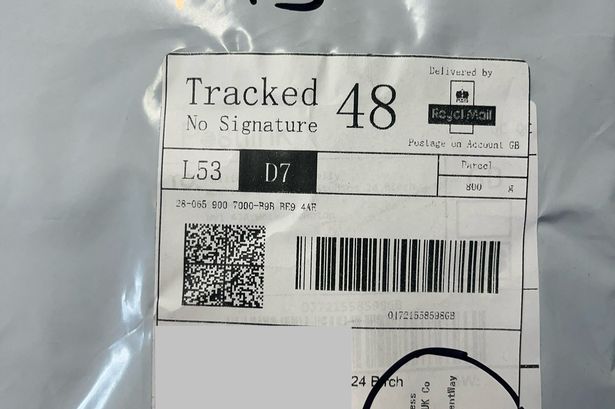 One of the packages which came from China(Image: Millie Wiltshire-Kelly)
One of the packages which came from China(Image: Millie Wiltshire-Kelly)
Duped and furious shoppers have continued to issue warnings about ‘scam’ websites based in China that are flooding social media with fake adverts.
Customers have been buying clothing items from websites under the guise they were were nabbing a good deal from legitimate and UK-based stores. Many of the fake sites offer permanent flash sales after announcing they were closing down following decades in business.
But the reality is very different. A Manchester Evening News investigation has in recent weeks revealed how cheaply-made items are being made in bulk and actually shipped from warehouses in China – and that the people purporting to be behind the businesses are actually AI creations.
Join the Manchester Evening News WhatsApp group HERE
Once customers receive the items, often overpriced and nothing like they were described, they face time-consuming struggles to try and claim a refund, while having to foot the bill for packaging and returning the clothing back to China themselves.
The items, sold for a fraction of the price on the likes of Amazon and AliExpress, are often instead poor quality and made from cheap fabrics. The stores, purporting to be UK-based have instead been branded a ‘complete scam’.
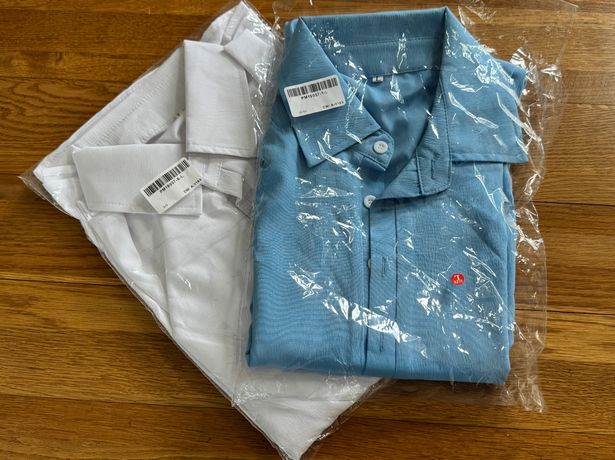 Shoppers have spoken to the M.E.N after falling victim to the ‘scams'(Image: Submitted)
Shoppers have spoken to the M.E.N after falling victim to the ‘scams'(Image: Submitted)
AI-generated images are even used to create entirely false personas for the store’s owners – including an elderly couple and sisters who claimed to have run UK-based stores for almost 30 years before closing down.
The pages then advertise on the likes of Facebook and Instagram and embed false Trustpilot shopper reviews to appear more trustworthy and authentic.
Millie Wiltshire-Kelly recently fell victim after seeing an advert on Instagram. She was guided through to the Taylor Wardrobe website in February and placed an order for a jacket, but after reading Trust Pilot reviews, she quickly realised it ‘was a scam’.
READ MORE ‘Closing down after 29 years!’: The fake fashion boutiques stitching up shoppers on Facebook
“I managed to fall for an ad on Instagram much in the same vein,” she said. “It looked like a legitimate usual shop website, with the catalogues and searching options. Nothing about it looked off.
“But I Googled the actual store and then saw the Trustpilot reviews. They were all one star and people commenting it was a scam. I thought, ‘for God’s sake, I can’t believe I’ve fallen for this.”
Millie tried to cancel her order within a number of days when she realised it had still not been shipped. It was another tell-tale sign that the coat was not coming from a UK-based store, but rather overseas and would likely take weeks. Responses told her the order could not be changed.
“I gave them several chances to cancel my order but they refused. I’m pretty sure their email responses are all AI,” she said.
After processing a chargeback through her bank Monzo, she got the money deposited back into her account almost instantly. She wasted no time in acting, and waited for the parcel to arrive.
Weeks later, when the white tracked package was delivered, she instead penned ‘Refused’ on it and flung it straight back into the post box for it to be returned back to the UK courier, then prompting a number of emails from the store.
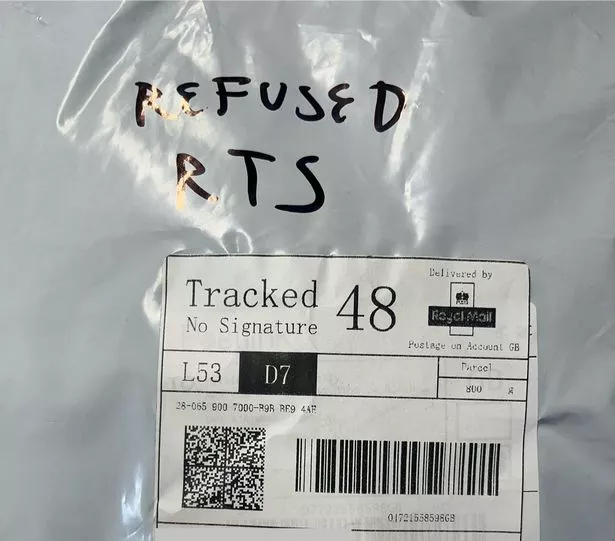 Millie returned the package instantly(Image: Millie Wiltshire-Kelly)
Millie returned the package instantly(Image: Millie Wiltshire-Kelly)
“Of course what I didn’t want to happen was to receive the item and the scammers want the money back because I have the item,” she said. “So what I actually did was, after the parcel was delivered, I wrote ‘REFUSED RTS’ in big letters and chucked it back in the post box.
“They sent me four emails over the next few weeks asking me for a correct address as delivery had been ‘unsuccessful.’ However on the tracking, it showed the parcel has been returned to their middle man. I’ve heard nothing since, but I’m keeping hold of evidence I posted it back just in case.
“The curious thing was, when I placed the order, it was called Taylor Wardrobe, but when they were emailing me the store was then called John and Lucy.”
When the Manchester Evening News tried to find the online store, we were instead met with a Shopify page which read: “This store does not exist.”
 The store appears to have vanished online
The store appears to have vanished online
“I think it’s ridiculous that there isn’t more being done about this when people are being scammed,” Millie added. “After realising it was a scam I reported the advert to Instagram, but I kept seeing it for weeks after and other stores selling the exact same item.”
Issuing a warning, she urged shoppers to ‘check Trustpilot’ and ‘do your research’ before parting with cash.
Customers are finding themselves trapped. Last week, we spoke to two shoppers who told of their shock upon receiving the poor-quality goods, their agonising correspondence with the people behind the online websites and their reluctance to provide return addresses, often in the Zhejiang district some 6,000 miles away, which means returns come at a sky high price to the customer and without any guarantee that the refunds will actually be issued at all.
Earlier this month, a Manchester Evening News investigation revealed how a store purporting to be from Manchester was closing down after 29 long and successful years in business.
The M.E.N also ordered a jumper from one of the websites, claiming to be based in Manchester and closing down, which was shipped from China, took weeks to come and was of a much poorer quality and shape to how it had been advertised.
Speaking last week, Ian, from Sale, told of how he was served an advert on Facebook boasting a closing down sale for a store, Harper Manchester, purporting to be based in Manchester city centre.
Harper Manchester, reported on extensively by the Manchester Evening News in recent weeks, claimed to have been run for almost three decades by couple John and Alice Harper, on King Street – except it never actually existed.
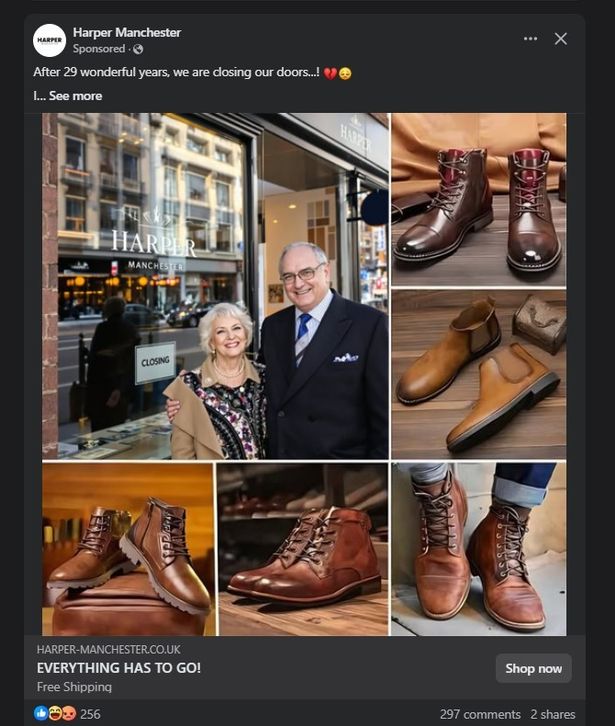 A Harper Manchester advert used AI-images of John and Alice Harper who never existed(Image: Manchester Evening News)
A Harper Manchester advert used AI-images of John and Alice Harper who never existed(Image: Manchester Evening News)
Advertised as real leather, Ian placed an order for brown boots on an enticing sale, from £200 to £49.95. But weeks later when they arrived, they looked nothing as described and were ‘like plastic’.
“The website prompts you into thinking you are getting a good deal by encouraging you to add it to the basket before stock runs out,” he said. “I checked they were leather and the right size, and ordered. Nothing at first indicated it would be coming from China or to suggest it wouldn’t be quick delivery.
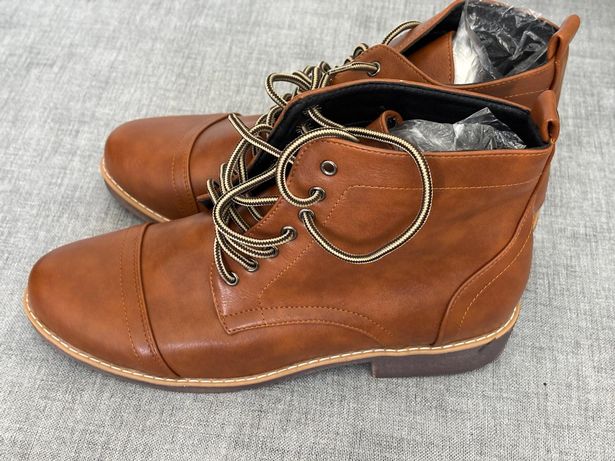 Ian received the brown shoes weeks later – and they were not as described(Image: Submitted)
Ian received the brown shoes weeks later – and they were not as described(Image: Submitted)
“The back design was different, the tongue is a one-piece which is stitched, and there is only single stitching on the sole. You could go to one of those cheap shoe shops and buy them for a tenner and be quite happy, but these were almost £50.
“They were nothing like they had been advertised. They’re selling it as a pair of premium leather shoes that you are convinced were originally £200. They are selling them under a guise.
“I would describe myself as fairly savvy, and could kick myself for falling for this.”
The UK Chartered Trading Standards Institute (CTSI) said it is ‘aware’ of consumer complaints ‘regarding businesses that make false or misleading claims online.
Shoppers are urged to not rely on reviews on the store websites and carry out thorough research elsewhere, be wary of unrealistically cheap deals, read product descriptions carefully and to keep all correspondence and documentation relating to purchases.
